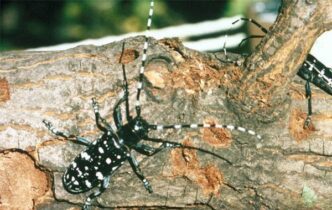
COLUMBIA — You can evacuate the hurricane if need be. Your four-legged friends need help with the decision.
“Many animal owners are hesitant to evacuate unless they know their animals will be safe. But staying behind can put families in harm’s way, and leaving pets behind can hamper the efforts of first responders entering the area to deal with human life and safety issues,” said Charlotte Krugler, emergency preparedness veterinarian for Clemson University Livestock-Poultry Health (LPH).
“During emergencies, most animal issues really boil down to people issues. Our goal is to provide the safest possible circumstances during an emergency for everyone concerned, which ultimately includes animals, too,” she said.
Krugler advises people evacuating with pets to seek temporary shelter with friends or family out of the affected area.
“Second best is to find a ‘pet-friendly’ hotel in a quick Internet search,” she said. “There are also numerous facilities for safe pet boarding across the state. However, some folks, especially those without transportation, will need to seek refuge in a shelter and some of these will have pets.
The LPH Web site includes links to information and resources on emergency preparedness for animals at www.clemson.edu/public/lph/ahp/emergency-prep.
The bigger the animal the bigger the issue. Horses present special problems.
It is common during a weather crisis for neighboring states to temporarily waive regulations requiring the restriction of movement, quarantine and identification of animals crossing state lines. These regulations frequently require certification by veterinarians as to the health of the animals being transported.
State Veterinarian Boyd Parr has already suspended some of the requirements for the interstate transport of animals to accommodate evacuations ahead of Hurricane Dorian from states that have requested it. So far, the slates of Florida and Georgia.
Now that South Carolina has issued mandatory evacuations for certain zones along the South Carolina coast, the states of Georgia, North Carolina, Tennessee and West Virginia have issued similar waivers for horses that want to evacuate to safe areas of those states.
The T. Ed Garrison Arena at Clemson is one of the locations available to horse owners evacuating due to Hurricane Dorian and has already received some horses from the South Carolina coast. The Garrison Arena does still require a current Coggins test in order to protect other horses that may be at their facility. A list of other available sites for hosting equine evacuees is available on the Emergency page at www.clemson.edu/LPH.
Specifically, Parr’s declaration for horses from other states temporarily suspends these requirements:
- Horses being evacuated to South Carolina that have a current Coggins test will be admitted to the state without a Certificate of Veterinary Inspection (CVI). A current Coggins test chart should accompany these horses.
- Horses being evacuated to South Carolina without a current Coggins test will be allowed entry into the state provided they will be allowed to return to their state of origin without a current Coggins or CVI after the evacuation is lifted.
- All other animals being evacuated without a CVI will be temporarily admitted to South Carolina and also allowed to leave South Carolina provided the state to which they are destined also has waived their import requirements.
The order extends until Sept. 15 unless extended or rescinded. Clemson LPH issued similar waivers in recent years for Hurricanes Florence and Irma.
As for farm animals, it’s not always possible to evacuate horses or even recommended to evacuate some other farm animals during an emergency. Some may be safer left at home, and the LPH site lists common safeguards owners can take to keep animals safe.
END






